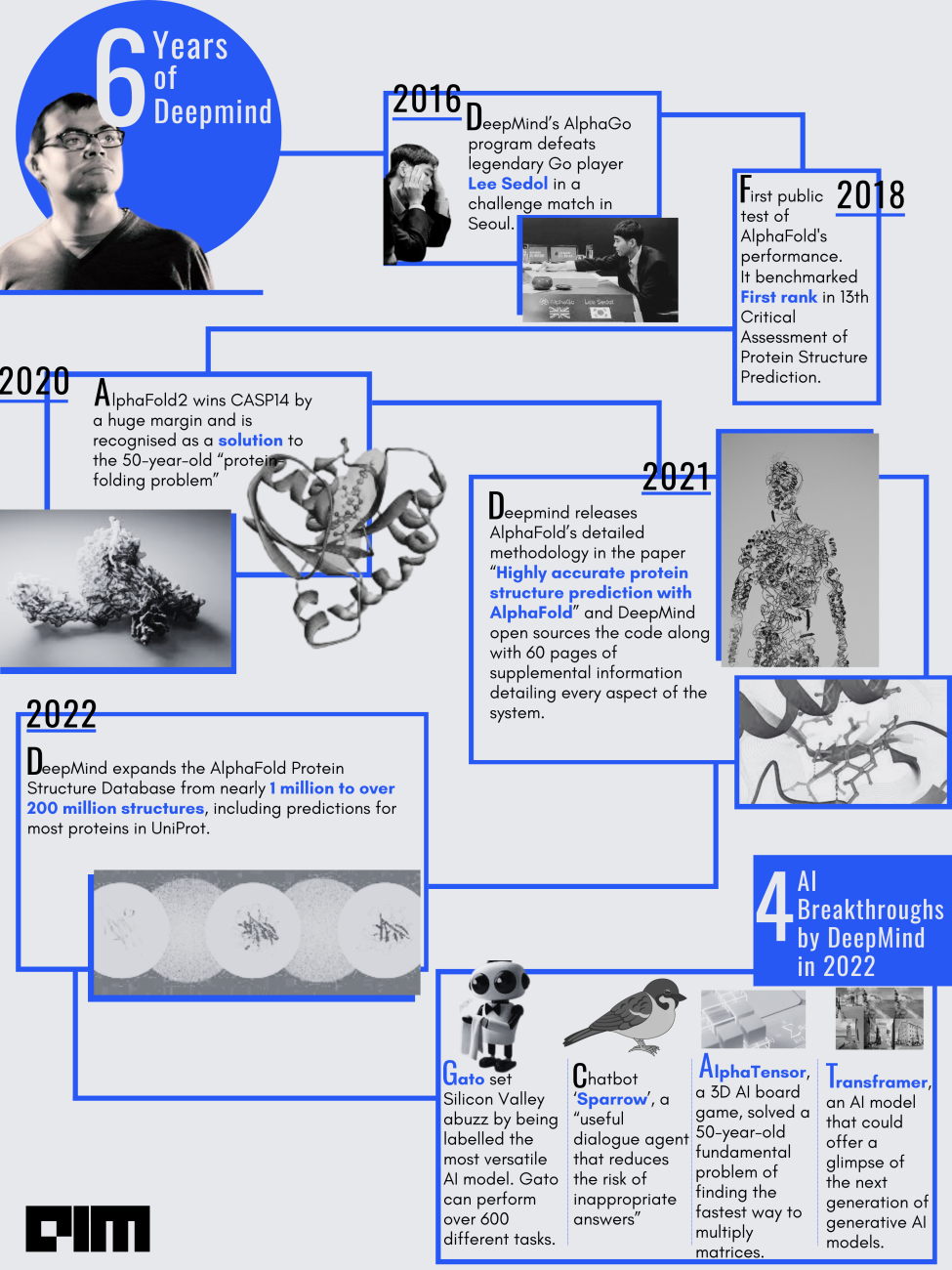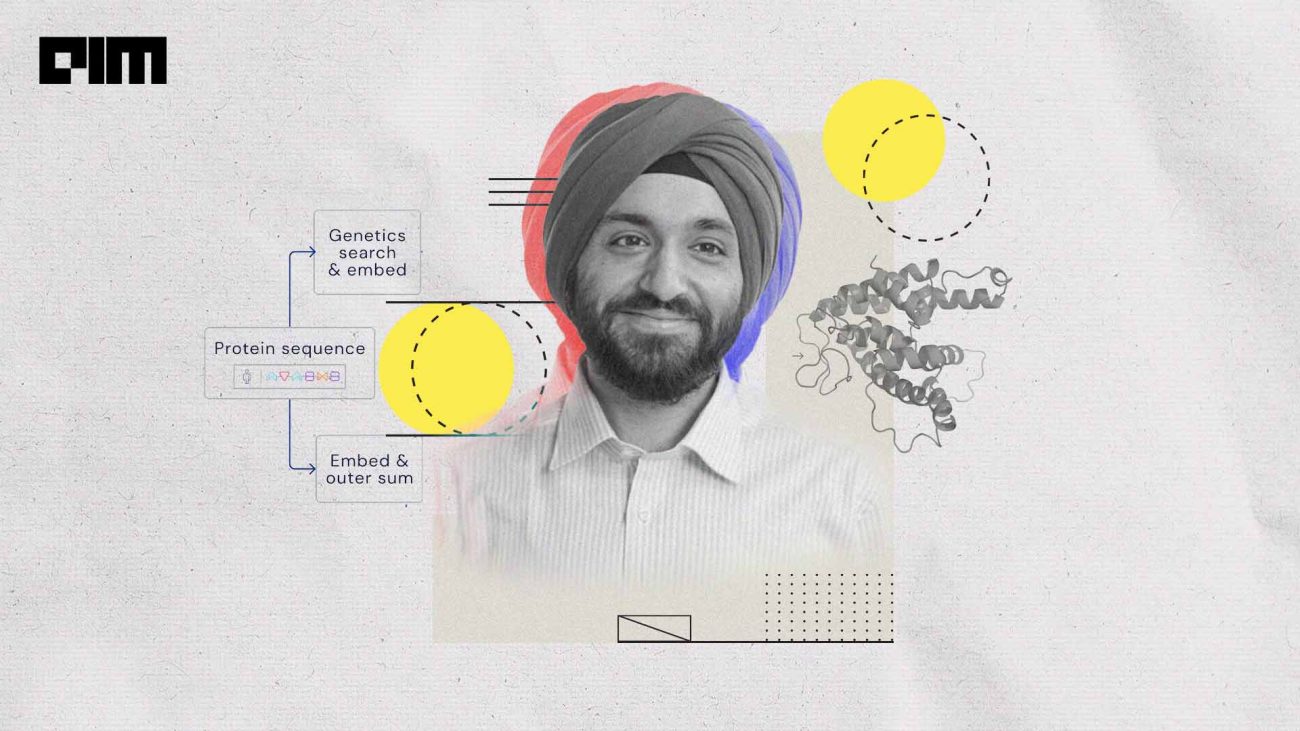|
Listen to this story
|
The king of reinforcement learning, DeepMind, has been making strides in AI. From developing AI champions/agents like AlphaGo, AlphaStar, and more, to the revolutionary protein folding model, AlphaFold, and the most recent matrix multiplication algorithms finder, AlphaTensor and auto-code generator AlphaCode, the research institute, supported by Google, adopts a different approach when it comes to solving intelligence for humanity and scientific advancements.
In an exclusive interview with Analytics India Magazine, Pushmeet Kohli, head of research (AI for science, robustness and reliability) at DeepMind, shares research philosophy and AI breakthroughs alongside his contributions in the field.
Growing up in Dehradun, a scenic hill station in India, Kohli wanted to be a teacher. Considering his career trajectory in retrospect, Kohli said, “I find the role of teachers in society a very important one. The amount of impact that they have in shaping and influencing people cannot be overstated. Currently, I am teaching machines. Maybe at some point, I would like to become a teacher in a school or university.”
Pushmeet Kohli was a computer science student, and, after working at Microsoft Research for eleven years, he joined DeepMind. Kohli believes that he has been very fortunate that his job and passion are one, which is to think about intelligence and what computers can do. “I’ve always been very curious about how the world works, and that is, I think, driven by many of the decisions that I have taken from growing up.”
Deepmind’s Culture and Research Philosophy
Teams at Deepmind are on a mission to leverage AI technologies to make breakthroughs in disciplines ranging from biology to maths and beyond. Over the last few years, their AI research arm has made progress on a number of interesting problems.
There are two things about DeepMind that Kohli absolutely adores. One is that DeepMind has people who are really passionate about the mission statement, which is not only solving intelligence but also benefiting science and humanity. Secondly, people are collaborative, and they possess a shared sense of what needs to be done. If you’re working on an extremely difficult problem for many, many years, it can be isolating. Not many people are aware of this problem. At DeepMind, it is subverted because people share the same vision statement and passion about the problem. It’s like you’re working with a large collaborative team.
“You are a product of your interactions,” Kohli believes.

Kohli’s Contributions
“Challenges like climate change and the pandemic have made it very clear that as humans, we have a limited understanding, and also we don’t control nature. Science allows us to broaden our understanding of nature and lets us leverage AI, which is going to be one of the most powerful technologies the species have,” believes Kohli.
Predicting protein structures has long been considered one of the truly difficult problems in computational biology, and AlphaFold has made extraordinary progress over the last year or two. Kohli has contributed highly to this state-of-the-art AI system for predicting the 3D structure of proteins.
The team achieved another milestone in 2022 by tackling the fundamental matrix multiplication problem by turning it into a single-player 3D board game called ‘TensorGame’. Matrix multiplication is one of the simplest forms of mathematics but gets intensely complex when applied in the digital world. Despite its omnipresent nature, the calculation is not very well understood. Moreover, nobody knows the quickest method of solving the problem because there are infinite ways to do so. That is, until Deepmind’s research entered the picture. With Deepmind’s release, researchers shed light on a 50-year-old fundamental mathematics question of finding the fastest way to multiply two matrices.
Also read: Meet the Researchers who beat DeepMind at Matrix Multiplication
Focusing on the mushrooming AI community, Kohli said, “Two decades ago, the AI community was extremely niche. However, with the increasing number of people interested in mathematics, computers and statistics, it has now become a very large community, contributing to practical systems and end-user applications across the board.”
Pushmeet Kohli finds generative AI to be very interesting. Moreover, Deepmind’s contributions, in which an agent can control a fusion reactor and stabilise plasma, is an achievement he was amazed by. “I am very surprised, but the fact that we are able to do this shows the impact that machine learning and AI can have. It’s great to see the developments happening in this space,” he concluded.





















